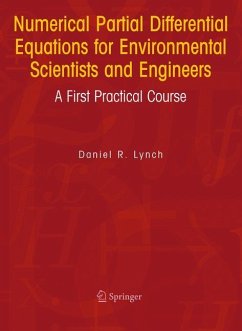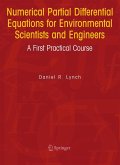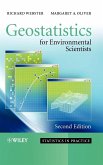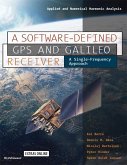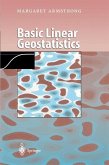This book concerns the practical solution of Partial Differential Equations. We assume the reader knows what a PDE is - that he or she has derived some, and solved them with the limited but powerful arsenal of analytic techniques. We also assume that (s)he has gained some intuitive knowledge of their solution properties, either in the context of specific applications, or in the more abstract context of applied mathematics. We assume the reader now wants to solve PDE's for real, in the context of practical problems with all of their warts - awkward geometry, driven by real data, variable coefficients, nonlinearities - as they arise in real situations. The applications we envision span classical mathematical physics and the "engineering sciences" : fluid mechanics, solid mechanics, electricity and magnetism, heat and mass transfer, wave propagation. Of course, these all share a joyous interdisciplinary unity in PDE's. The material arises from lectures at Dartmouth College for first-year graduate students in science and engineering. That audience has shared the above motivations, and a mathematical background including: ordinary and partial differential equations; a first course in numerical an- ysis; linear algebra; complex numbers at least at the level of Fourier analysis; and an ability to program modern computers. Some working exposure to applications of PDE's in their research or practice has also been a common denominator. This classical undergraduate preparation sets the stage for our "First Practical Course". Naturally, the "practical" aspect of the course involves computation.
From the reviews of the first edition:
"This book concerns the practical solution of partial differential equations and reflects an inter-disciplinary approach to problems occurring in natural environments. ... it is a new innovation for the student community in environmental science and engineering. It is an excellent piece of research." (Prabhat Kumar Mahanti, Zentralblatt MATH, Vol. 1076, 2006)
"This book concerns the practical solution of partial differential equations and reflects an inter-disciplinary approach to problems occurring in natural environments. ... it is a new innovation for the student community in environmental science and engineering. It is an excellent piece of research." (Prabhat Kumar Mahanti, Zentralblatt MATH, Vol. 1076, 2006)

